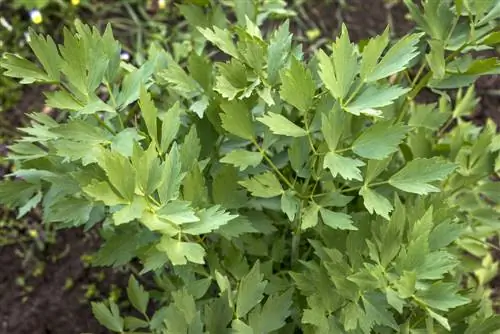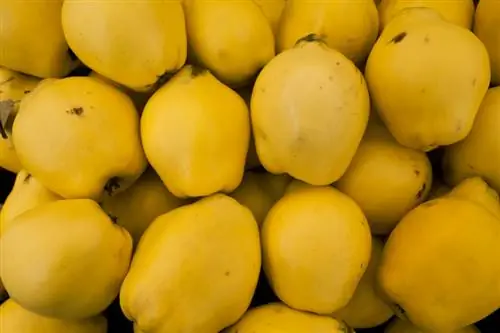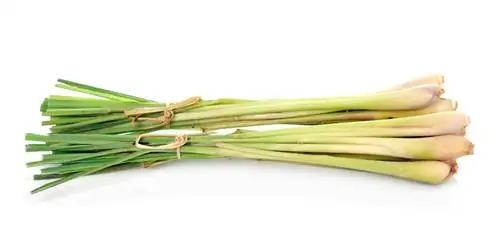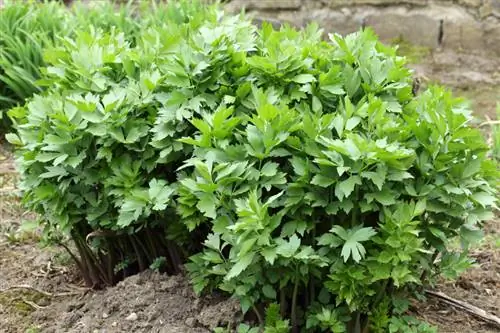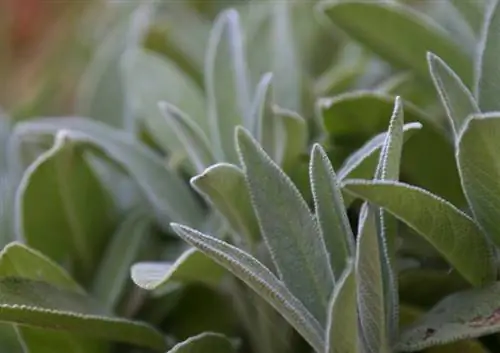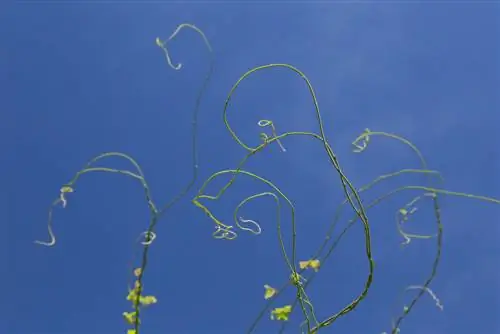- Author admin [email protected].
- Public 2023-12-16 16:46.
- Last modified 2025-01-23 11:22.
Lovage is also known as Maggikraut because the taste of its leaves is reminiscent of the aroma of the well-known spice mixture. The seasoning intensity depends on the ambient conditions. Their development requires a good supply of nutrients.
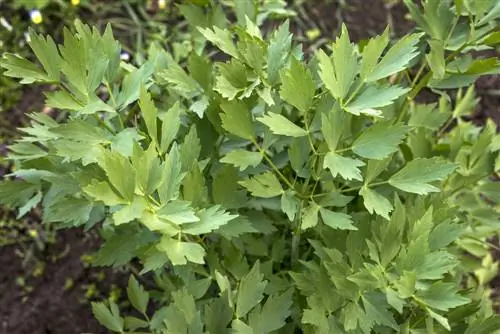
How should you properly fertilize lovage?
Lovage requires basic fertilization with compost or nitrogen-containing alternatives, such as horn shavings and bone meal, for a strong aroma. In addition, a short-term supply of nutrients can be provided with nettle manure or organic liquid fertilizers. Potted crops require a liquid herb and crop fertilizer every four weeks.
Long-term fertilization
The maggi herb is one of the heavy feeders, which removes large amounts of nutrients from the soil every year. In order for the spicy leaves to develop a strong aroma, basic fertilization is necessary. This is done for the first time when planting in the garden and is refreshed every year.
Compost
Lovage needs around three liters of organic fertilizer per square meter of root ball every year. Fresh compost is ideal for basic care and is applied as a mulch layer or lightly worked into the substrate. Grass clippings, horn shavings and bone meal provide a nitrogen-containing alternative. These fertilizers are administered in two parts. Nutrients are added in March or April. Fertilization is then carried out between July and August.
Short-term nutrient supply
If you don't have compost available, we recommend administering short-term nutrient sources. Fertilization starts at the beginning of the growing season and continues until August at most. The plants no longer need additional nutrients once the first flowers appear.
Plant manure
A manure made from nettles supplies the lovage with nitrogen, magnesium and iron and has a strengthening effect, so that the culinary herb becomes resistant to pest infestation. For ten liters of brew you need about a kilogram of fresh nettle shoots or 200 grams of dried herb.
Instructions:
- cut fresh shoots into small pieces
- put in a bucket
- fill with water and cover with jute bag
- Stir the mixture daily
- let it steep in a warm place for two weeks
Fermentation creates unpleasant odors, which are bound by adding rock dust. The brew is ready as soon as no more bubbles appear.
Liquid fertilizer
Organic liquid fertilizers are of plant or animal origin and provide plants with nutrients in a quickly available form. They are administered with the irrigation water or distributed on the leaves with a spray bottle and provide the lovage with numerous trace elements. This also has a positive effect on the soil.
Tip
Lovage in pots should be supplied with a liquid fertilizer for herbs and crops every four weeks.

